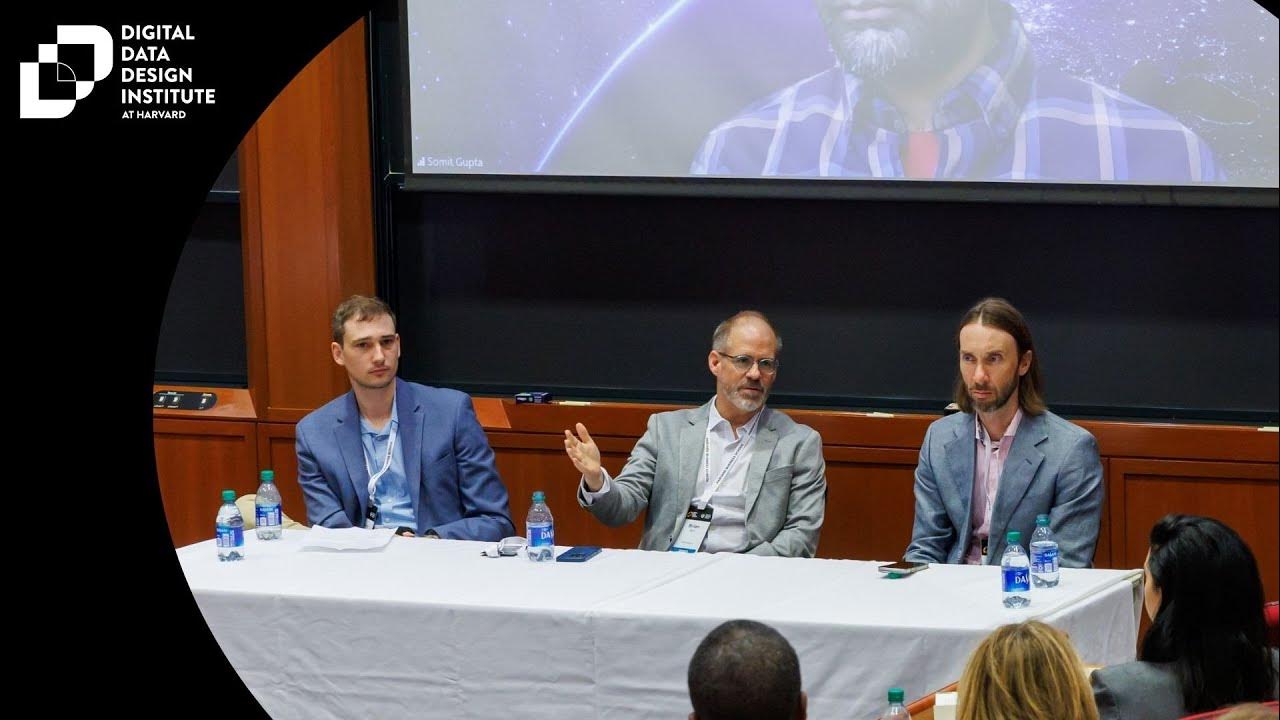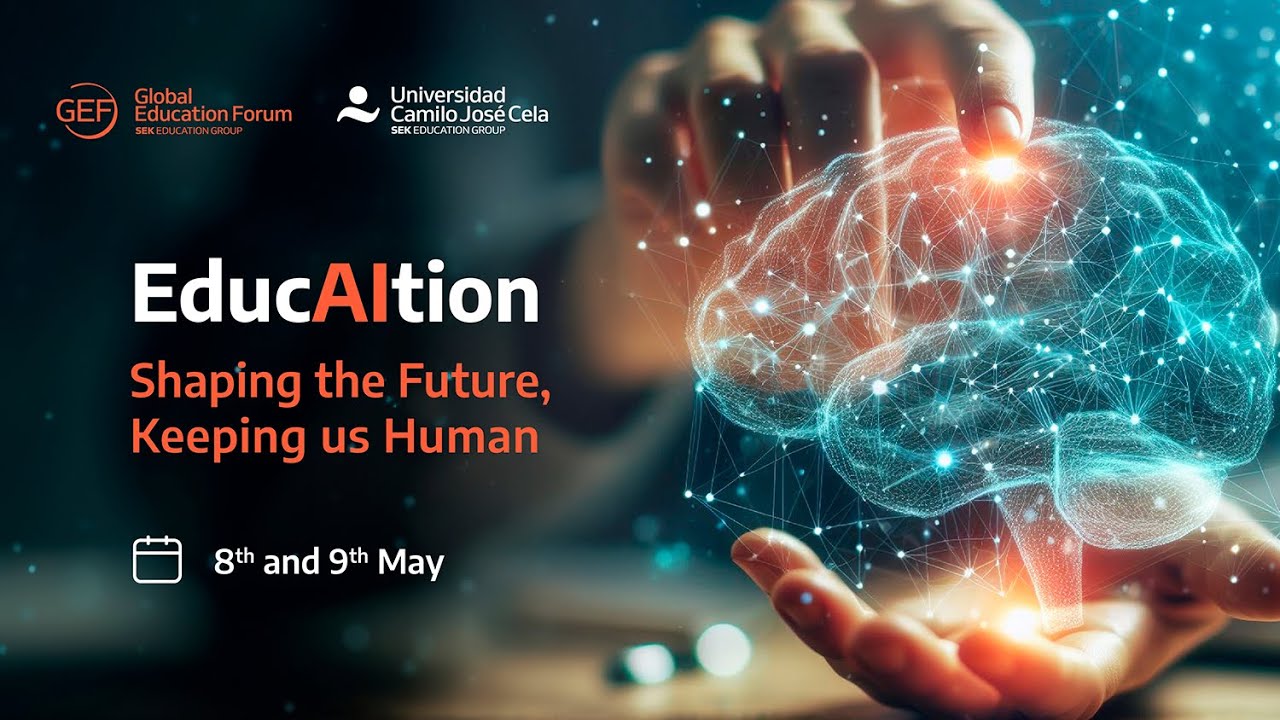GEF Madrid 2024: AI and Lifelong Learning
Summary
TLDRThis panel discussion explores the intersection of lifelong learning and AI, emphasizing the importance of neuroplasticity and the brain's adaptability. Panelists from diverse backgrounds, including education and technology, share their perspectives on integrating AI into learning experiences. They discuss the role of AI in personalizing education, the need for critical thinking alongside AI, and the ethical implications of AI-driven learning pathways. The conversation underscores the necessity for human interaction and experiential learning, despite AI's growing influence in education.
Takeaways
- 🧠 The power of neuroplasticity and its potential for lifelong learning were highlighted as exciting concepts that can be utilized in AI and education.
- 🌟 Lifelong learning is seen as a purposeful, ongoing activity that extends beyond formal education, fostering personal growth and enhancing career prospects.
- 🏛 The role of educators is evolving to include the integration of AI in educational programs, with a focus on how to teach students to effectively interact with AI.
- 🤖 AI's generative capabilities are being explored for personalized learning experiences, with the potential for AI companions that adapt to an individual's learning journey throughout life.
- 🎓 There is a discussion on the relevance of education in the context of labor market needs, emphasizing the importance of aligning lifelong learning with industry demands.
- 🔗 The importance of social and emotional learning was underscored, with the acknowledgment that AI cannot replace human interaction and the development of soft skills.
- 🏫 The future of universities may involve a redefinition of their role, with the potential for AI to open up new channels for knowledge dissemination beyond traditional classroom settings.
- 💡 Critical thinking was identified as a crucial skill in the age of AI, where humans must discern the information and arguments presented by AI systems.
- 🌐 There is an ethical dimension to AI's influence on education and lifelong learning, with concerns about who controls the direction of AI and its impact on job markets and skills development.
- 🛠 The potential of AI to assist in personalized learning is balanced by the need for human autonomy in making choices about one's educational path and goals.
- 🚀 The conversation suggests that AI is not a replacement for human educators but a tool that can enhance teaching and learning when used appropriately alongside human interaction and judgment.
Q & A
What is the main topic of the panel discussion?
-The main topic of the panel discussion is lifelong learning and its relationship with AI and technology, as well as the role of education in facilitating lifelong learning.
What is the role of Ismael Gomez in the discussion?
-Ismael Gomez is the director of digital strategy for OEI (Organization of Ibero-American States for Education, Science and Culture), and he discusses his interest in lifelong learning and its intersection with technology and AI.
What is the significance of Alvar Fernande's work in the context of the panel?
-Alvar Fernande runs a think tank called Shar Brains, which focuses on brain science and its application in various contexts. His work is significant as it explores how understanding the brain can enhance lifelong learning.
How does Andre CEO and cofounder of BERS view the role of AI in customer service and sales?
-Andre believes in the power of generative AI to improve the relationship between companies and their clients, particularly in the retail sector, by providing personalized help and services.
What is Anene Bort's perspective on integrating AI into educational programs?
-Anene Bort, as a rector magnificus of Atus University and former professor in the ethics of emerging technologies, is passionate about integrating AI into educational programs in a way that is useful and democratic, making it accessible to a broader workforce.
What is the panel's view on the importance of critical thinking in lifelong learning?
-The panel emphasizes the importance of critical thinking as a lifelong skill, especially in the context of AI, where humans need to make choices about the information and arguments provided by AI.
How does the panel discuss the impact of AI on the labor market and job skills?
-The panel discusses the impact of AI on the labor market in terms of how it can help validate skills and provide credentials for workers, as well as the need for AI to be taught in a way that is relevant to the labor market's demands.
What is the panel's opinion on the future of universities in relation to AI and technology?
-The panel believes that while universities may not disappear, they will need to adapt and keep up with developments in technology and AI. Otherwise, they risk becoming outdated, and alternative models of education may emerge.
How does the panel view the role of AI in personalized learning?
-The panel sees AI as a tool for personalized learning, but also emphasizes the importance of human interaction and autonomy in the learning process, suggesting that AI should complement rather than replace human-led education.
What ethical implications does the panel discuss regarding AI and lifelong learning?
-The panel discusses ethical implications such as who defines learning pathways and the potential for large corporations to influence education through AI, as well as the responsibility of ensuring AI does not replace human empathy and social skills.
What is the panel's stance on the necessity of experiential learning in addition to AI-assisted learning?
-The panel highlights the importance of experiential learning, stating that while AI can provide content and knowledge, it cannot replace the experience of learning through doing and the development of social skills.
Outlines

This section is available to paid users only. Please upgrade to access this part.
Upgrade NowMindmap

This section is available to paid users only. Please upgrade to access this part.
Upgrade NowKeywords

This section is available to paid users only. Please upgrade to access this part.
Upgrade NowHighlights

This section is available to paid users only. Please upgrade to access this part.
Upgrade NowTranscripts

This section is available to paid users only. Please upgrade to access this part.
Upgrade Now5.0 / 5 (0 votes)





